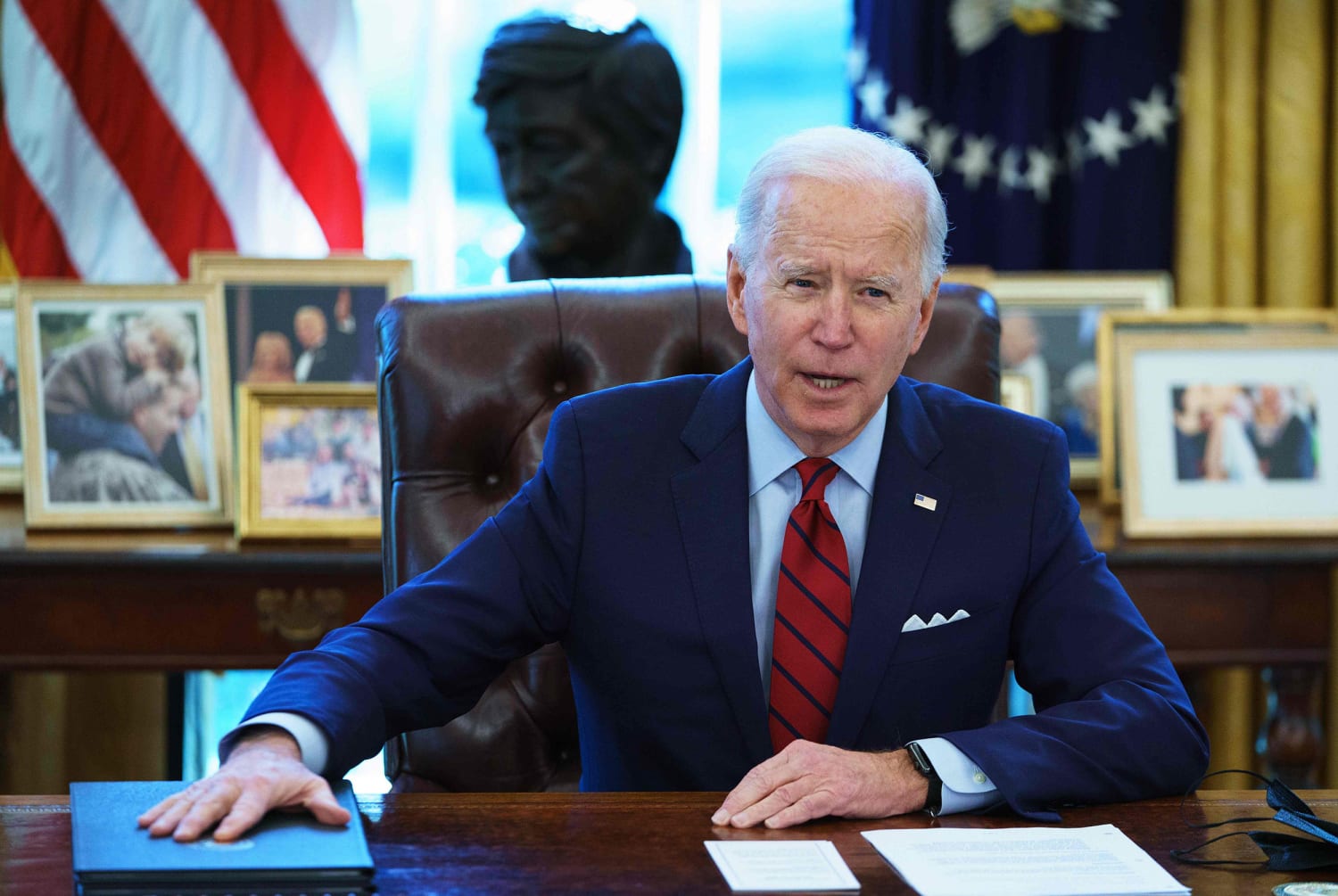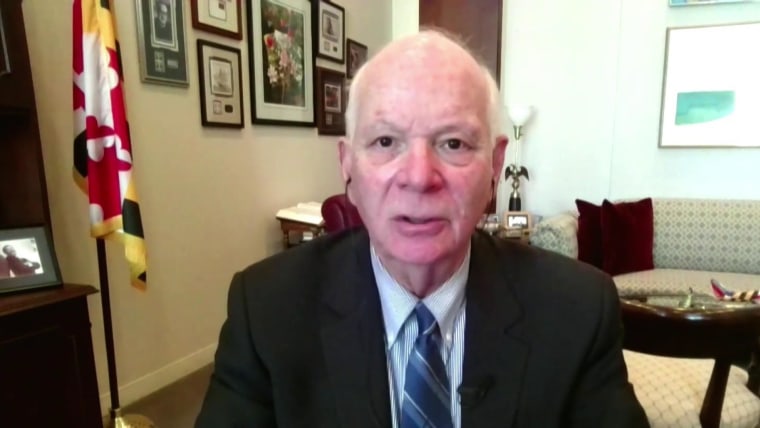WASHINGTON — President Joe Biden is planning to wind down his initial burst of executive actions by the middle of next week and shift his focus to getting key parts of his legislative agenda passed, with the $1.9 trillion coronavirus relief package as the top priority, according to three administration officials.
Biden has been quietly reaching out to Republicans about the relief bill, which he wants to pass with bipartisan support, and may soon begin holding in-person meetings at the White House, according to one official. At the same time, the president has been choosing his words carefully when weighing in on the upcoming impeachment trial of former President Donald Trump.
Biden has said a Senate trial needs to take place, but he’s held back on disclosing his views on whether Trump should be convicted, despite a willingness to sharply criticize his predecessor without hesitation in the past.
Explaining Biden’s reticence to make known his opinion on how he thinks the Senate should vote, one administration official said, “What he’s trying to do is pass legislation.”
Officials said their concern is a full-throated backing of impeachment would poison Biden’s hopes of bipartisanship by making it harder for some Republicans to vote in favor of anything he proposes.
Biden is also keeping his cards close when it comes to discussing his outreach to Republicans. Officials have said Biden is holding calls with Republicans, but he doesn’t want the White House to disclose them out of concern that it may be counterproductive to getting coronavirus legislation passed. The president is assessing where various Republicans stand on the relief bill and a possible subsequent bill, an official said. Republican Sens. Susan Collins of Maine and Rob Portman of Ohio have said they spoke with Biden this week, NBC reported Thursday.
Some administration officials privately acknowledge that it’s increasingly likely that Democrats in Congress will have to use the budget reconciliation process in order to pass the relief bill. Publicly, the White House is laying the groundwork for eventually backing the process, which would allow Democrats to move forward without Republicans, by attempting to rebrand the relief bill as a nonpartisan issue.
“Republicans can still vote for a package even if it goes through reconciliation,” White House press secretary Jen Psaki said Thursday, reiterating that Biden wants GOP support for the bill.
Democrats have signaled that they are prepared to use reconciliation if Republican support falls short. House Speaker Nancy Pelosi, D-Calif., who is in close contact with the White House, said Thursday that a budget resolution that would be the vehicle for passing the coronavirus bill by reconciliation will be on the House floor next week. “I hope we don’t need it, but if needed, we have it,” Pelosi said.
Biden also plans to push his immigration bill in the coming weeks, and unlike the White House’s insistence that the coronavirus legislation cannot be passed in pieces, some parts of the immigration bill could move separately, one official said.
Meanwhile, the White House is expected to roll out of a string of executive orders on immigration next week, including the long-awaited announcement of a task force to reunite migrant families separated under the Trump administration.
White House press secretary Jen Psaki confirmed to MSNBC’S Rachel Maddow on Thursday that Biden’s nominee for homeland security secretary, Alejandro Mayorkas, will lead the task force. The Senate is expected to confirm Mayorkas on Monday.
In other administration news:
- Biden and Vice President Kamala Harris will receive an economic briefing with Treasury Secretary Janet Yellen Friday morning.
- The president will travel to Walter Reed National Military Medical Center in Bethesda, Md., in the afternoon to visit wounded service members.
- Secretary of State Antony Blinken has chosen Rob Malley to be U.S. special envoy for Iran, the State Department confirmed Thursday. Malley, the president of International Crisis Group, a conflict resolution organization, served as the White House coordinator for the Middle East, North Africa and the Gulf region in the Obama administration, where he helped to negotiate the 2015 Iran nuclear deal that Trump withdrew from in 2018.
Rebecca Shabad and Abigail Williams contributed.
Source: | This article originally belongs to Nbcnews.com















